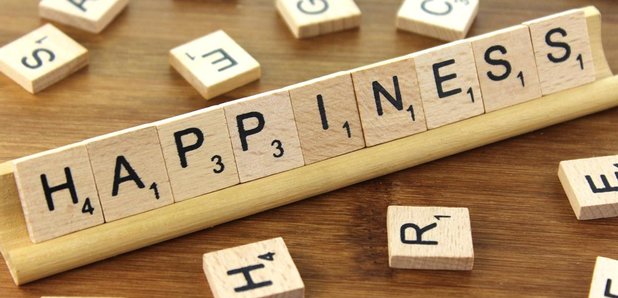
Clive Bull 1am - 4am
28 July 2018, 20:56 | Updated: 28 July 2018, 21:00

There is a famous Dickens quote that I can recall perfectly off the top of my head by simply looking it up on the internet. It is from David Copperfield, which I am almost certain is a book.
The character Wilkins Micawber states that, “Annual income twenty pounds, annual expenditure nineteen [pounds] nineteen [shillings] and six [pence], result happiness. Annual income twenty pounds, annual expenditure twenty pounds ought and six, result misery." ”
If that is true, then this entire country is currently in misery, but as it is Great Britain I am talking about, that's not such a surprise, as misery is one of our defining characteristics.
And so is living beyond our means.
Households in Britain spent about £900 more than they made last year. That doesn't sound a great deal but it adds up to £25bn that we spent that we didn't have.
This gets added to the vast, expanding bubble of consumer debt that currently amounts to over £300bn, according to PwC, who get paid to know about this sort of thing.
Experts say that this level of unsecured debt, on top of the amount we owe on mortgages, is unsustainable. In other words: bubbles pop.
When this one pops, we will be showered with something more dangerous than glitter and confetti.
I am not saying that Brexit has anything to do with it, but those members of the Evil European Superstate that are our nearest competitors are doing much better than we are.
The government's researchers at the Office for National Statistics state that the French made more than they spent, to the tune of 2.7% of their Gross Domestic Product.
The perfect Germans fared even better, recording a surplus equivalent to 5.1% of their GDP.
In spend spend spend Britain, we have a deficit among households of 1.2% of the money we make as a country.
The report from the ONS was titled “Making ends meet: are households living beyond their means?”
Yes. Yes they are.
And it is getting worse. We are taking out loans to make up the shortfall - £80bn worth of loans in 2017 alone.
This money is used to buy things we don't need with money we haven't got. Things like cars. We buy cars like people from other less splurging countries buy shoes.
When there is a new model out, we can't stand being in last year's version, so we borrow a year's wages and spend it on an asset that halves in value as soon as we drive it out of the shop.
There is also our addiction to buying stuff we don't need on the internet. Every day can be like Christmas when the postman comes knocking with a parcel of things we had forgotten we purchased while drunk the night before.
The reason why Amazon's Jeff Bezos has tired of buying leather jackets and RayBans and is now into rocket ships is because we have thrown all our money into the bottomless pit that is his bank account.
As you would expect, the rich are suffering the most.
Of course, I am joking.
It is the millions on low incomes that are falling deepest in to the debt trap.
The ONS say that the poorest 10% of households spent 2.5 times their disposable income last year. You can't do that without borrowing on the sort of interest rates that will keep the amount owed constantly creeping up, beyond their ability to pay it off. Ever.
The richest 10% spent about half their income in the same period, which is why they look better than the poor - less stress.
There's nothing that will improve your appearance more than waking up laughing.
Unfortunately, income for the poorest third of us is going down, not up. The post-crash financial recovery has not touched those who need the money the most.
And what is the caring, forward together, meritocratic government doing to help?
They have waved us all bye-bye and gone on holiday for seven weeks.
They will tell us that they are hard at work and I bet they are – working hard at trying to figure out how to put the cost of it on expenses.
And if they can, result: happiness.